Above: The Gibson Victory MV-X model guitar c. 1982
Gibson Guitars had a tough time in the 1980s; starting the decade, quality was indifferent at best, competition from Japan was intense, and Gibson’s strength as a ‘heritage’ brand was out-of-sync with the NEW NEW NEW vibe of hair metal, slick RnB, and new wave. The turnaround of this brand at the hands of Henry E. Juszkiewicz, David H. Berryman, and Gary A. Zebrowski was one of the most dramatic in the history of instrument-manufacture, and maybe even American industry in general. From a near-zero valuation in 1986, they grew the brand into a massive enterprise and improved quality significantly. I am perhaps a bit biased because Gibson was a generous and helpful benefactor of my brief career as a performer; and as I have noted before on these pages, I recently bought a shiny new (yup) J-45 and the I think the thing is just fantastic. But anyhow. Here are a few images from Gibson’s darkest decade.
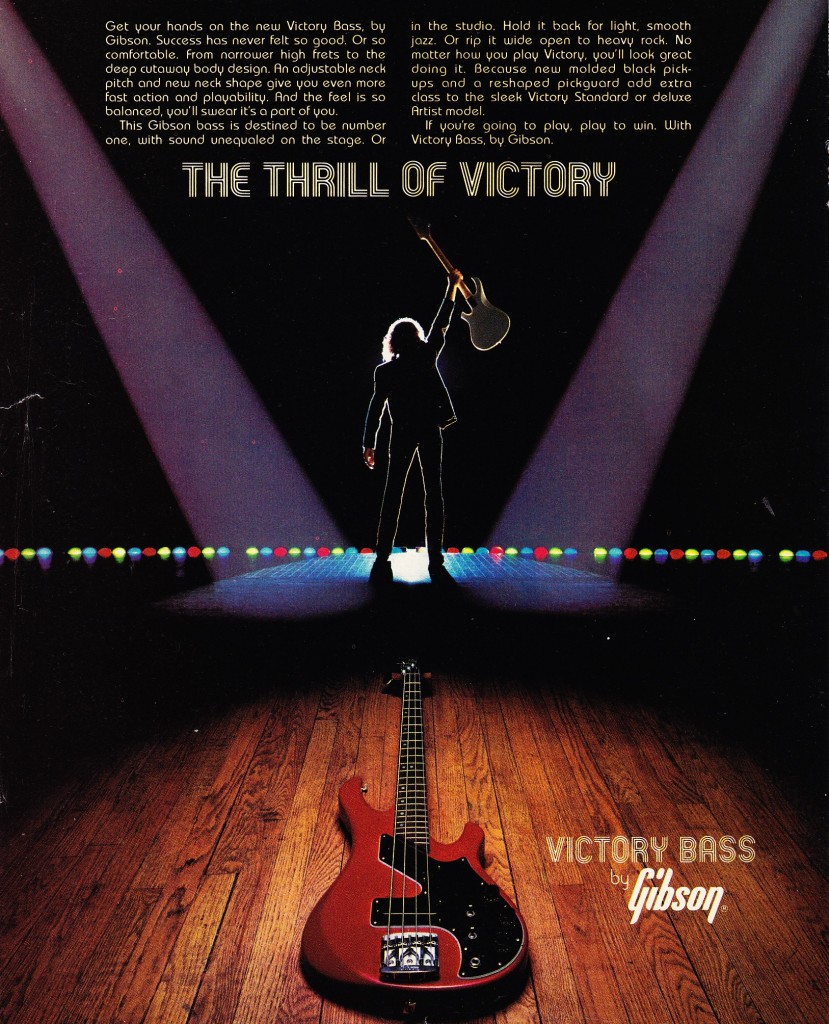
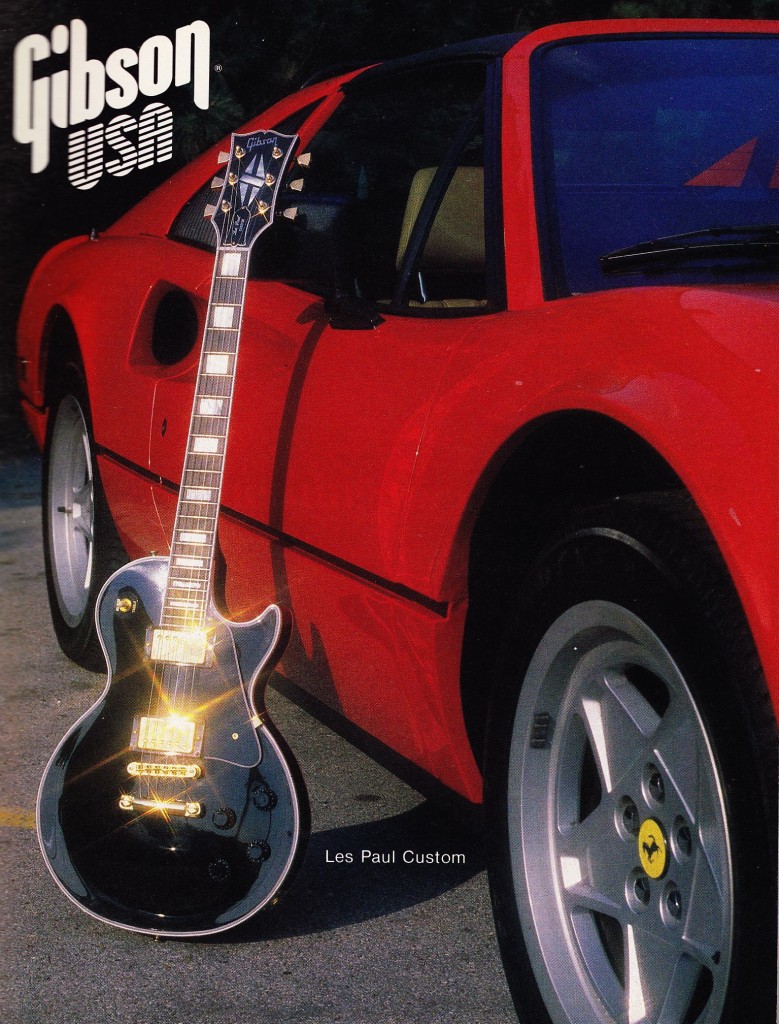
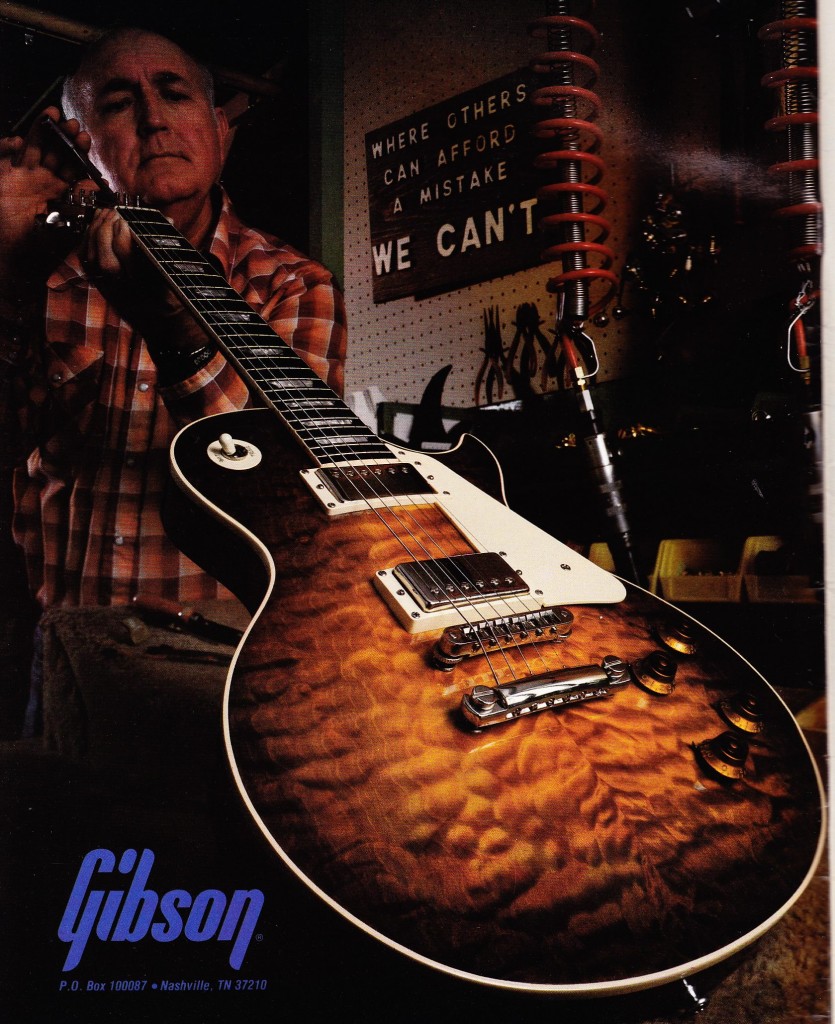
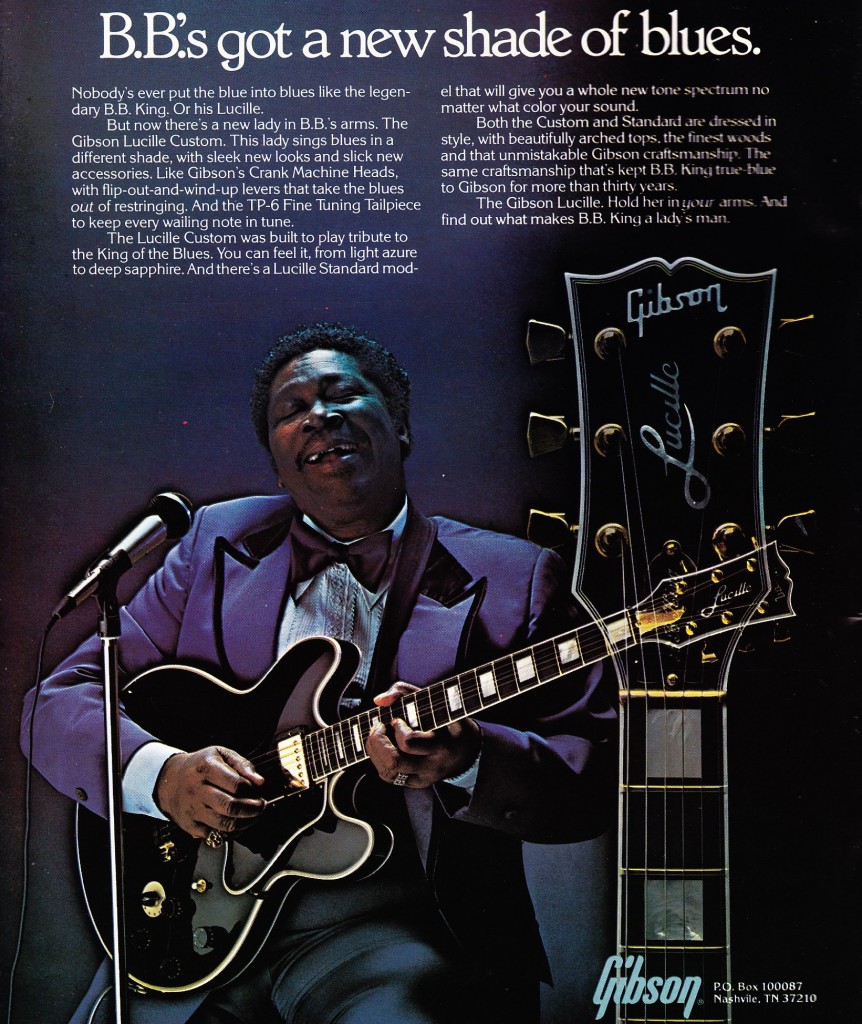 Above: The Victory Bass (1982), The Les Paul Custom (avec ‘Ferrari’) (1986), The Les Paul (1981), and the introduction of the ‘BB KING’ ES-355 variant (1981).
Above: The Victory Bass (1982), The Les Paul Custom (avec ‘Ferrari’) (1986), The Les Paul (1981), and the introduction of the ‘BB KING’ ES-355 variant (1981).
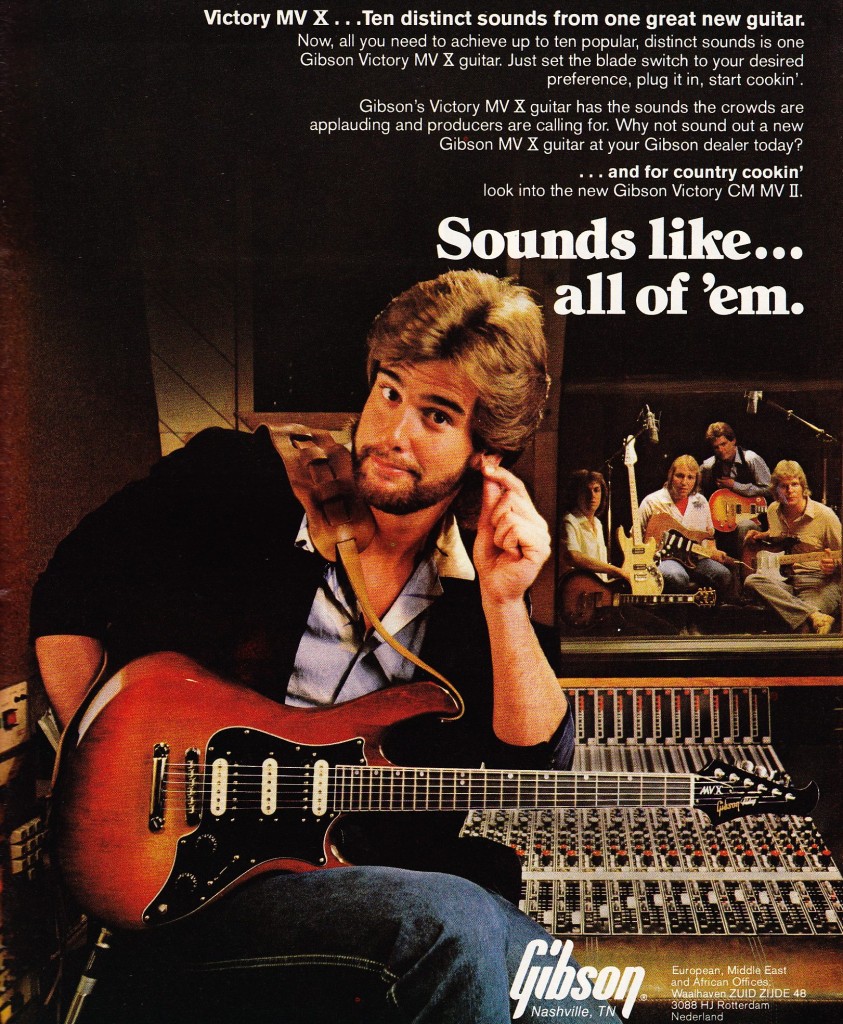
One reply on “Gibson Guitars in the 80s”
The history of American production guitarmaking has a common motif: success followed by malaise, bad workmanship and excess, the press and musicians start talking about what a POS they are, then the company loses market share and coolness, then the company either goes broke or there is a corporate come to Jesus meeting and a revival of quality breaks out. The cycle then repeats if sales skyrocket.
CF Martin didn’t fall until the others had gone through the cycle, and they still haven’t come back 100 percent although their better guitars are good now-but at those idiotic prices ought to be. Rickenbacker has never gone through the cycle at all because of the close family ownership and a disinclination to change-which has cost them a lot of sales but also kept them at a high quality level. Fender and Gibson have both been through this cycle twice.
It’s good for startup guitar companies because it gives them a window of opportunity. It’s bad for guitar players because there a lot of lousy guitars with famous names on them and often going for high sums of money.